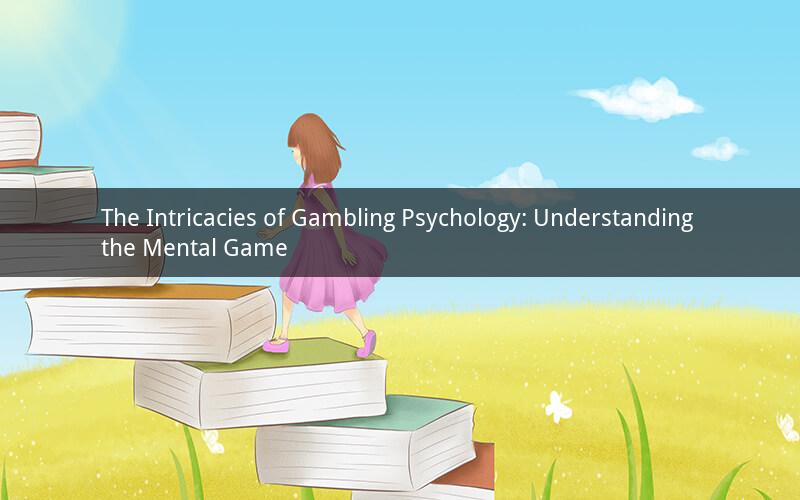
Gambling psychology refers to the study of how psychological factors influence gambling behavior. It is a fascinating area of research that sheds light on why individuals engage in gambling and what motivates them to continue doing so. In this article, we will delve into the psychology behind gambling, exploring various aspects that contribute to its allure and the potential risks involved.
1. The thrill of risk-taking
One of the primary psychological factors that drive individuals to gamble is the thrill of taking risks. For many people, the anticipation of winning big and the possibility of an exhilarating experience are hard to resist. This risk-taking behavior is often associated with the release of adrenaline and dopamine, two neurotransmitters responsible for pleasure and excitement. The anticipation of these feelings can be highly motivating, leading individuals to engage in gambling activities.
2. The allure of rewards
Gambling often involves the promise of substantial rewards, which can be highly appealing to individuals seeking financial gain. The idea of winning a significant amount of money can be a powerful motivator, especially for those who are struggling financially or seeking to improve their quality of life. However, the allure of rewards can also lead to a desire for more, causing individuals to chase losses or continue gambling even when they should know better.
3. The role of social factors
Social factors play a significant role in gambling psychology. Many individuals are drawn to gambling because it is a social activity that allows them to bond with others. For some, the social aspect of gambling can be just as important as the potential for financial gain. This social influence can make it difficult for individuals to resist the temptation to gamble, as they may feel pressured to conform to the behavior of their peers.
4. The psychological impact of gambling
Gambling can have a profound psychological impact on individuals, ranging from temporary excitement to long-term problems. For some, the psychological effects of gambling can be quite positive, as the experience of winning and the release of neurotransmitters can lead to a sense of accomplishment and happiness. However, for others, the psychological impact can be devastating, as gambling can lead to feelings of anxiety, depression, and addiction.
5. The risk of gambling addiction
One of the most concerning aspects of gambling psychology is the risk of addiction. Gambling addiction, also known as problem gambling, is a behavioral addiction characterized by the inability to control or stop gambling, despite the negative consequences. The psychological factors contributing to gambling addiction can be complex, including the thrill of risk-taking, the allure of rewards, and the social influence of others.
Now, let's answer some questions about the psychology of gambling:
1. Question: What role does cognitive bias play in gambling behavior?
Answer: Cognitive bias refers to the systematic errors in judgment and decision-making that can affect an individual's gambling behavior. Common cognitive biases in gambling include overconfidence, the illusion of control, and the availability heuristic. These biases can lead individuals to make poor decisions, such as chasing losses or placing risky bets.
2. Question: How does the psychological impact of gambling vary among different individuals?
Answer: The psychological impact of gambling can vary significantly among different individuals, depending on various factors such as personality, life experiences, and previous gambling history. Some individuals may experience temporary excitement and happiness, while others may develop long-term problems such as anxiety, depression, and addiction.
3. Question: What can be done to prevent gambling addiction?
Answer: To prevent gambling addiction, it is important to address the underlying psychological factors that contribute to its development. This can include setting limits on gambling activities, seeking support from friends and family, and seeking professional help when needed. Additionally, educating individuals about the risks and consequences of gambling can help raise awareness and reduce the likelihood of developing an addiction.
4. Question: How can social support help individuals struggling with gambling addiction?
Answer: Social support can play a crucial role in helping individuals struggling with gambling addiction. By providing emotional support, understanding, and encouragement, friends and family can help individuals maintain motivation to change their behavior. Support groups, counseling, and therapy can also provide valuable resources and coping strategies to overcome addiction.
5. Question: Can the psychological impact of gambling be mitigated through therapy?
Answer: Yes, the psychological impact of gambling can be mitigated through therapy. Therapy can help individuals identify and address the underlying psychological factors contributing to their gambling behavior. Techniques such as cognitive-behavioral therapy (CBT) can be effective in helping individuals develop healthier coping mechanisms and reduce the likelihood of relapse.
In conclusion, the psychology of gambling is a complex and multifaceted subject. Understanding the various psychological factors that influence gambling behavior can help individuals make informed decisions about their gambling habits and reduce the risk of developing gambling addiction. By addressing the psychological aspects of gambling, individuals can strive for a more balanced and fulfilling life.